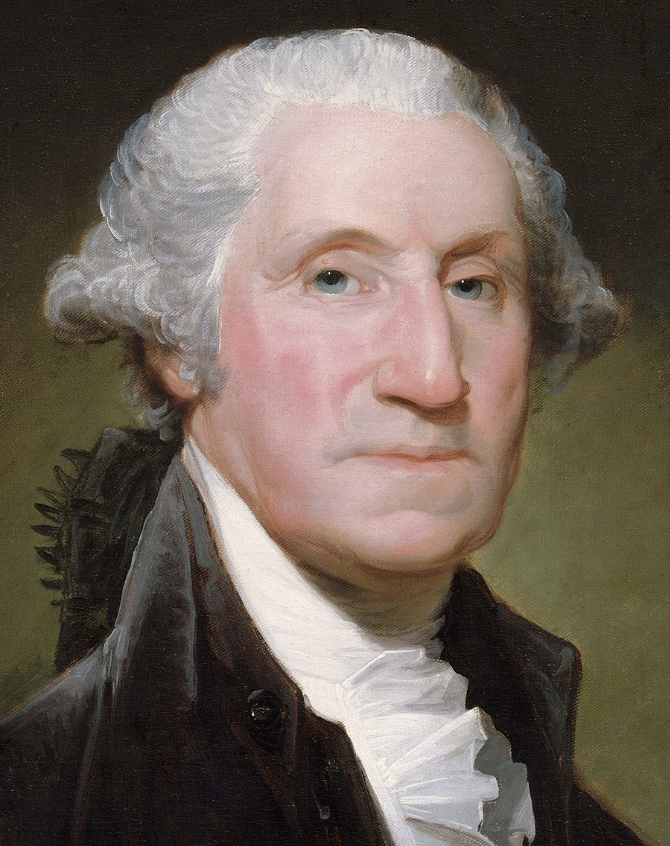On this date in 1732, George Washington was born in Popes Creek, Va., the eldest of six children. His father died when he was 11 and Washington inherited 10 slaves and a farm. He received a surveyor’s license in 1749 from the College of William & Mary and was appointed surveyor of Culpeper County. By 1752 he owned 2,315 acres of land.
Washington was elected to the Virginia House of Burgesses in 1758, was a delegate to the Continental Congress of 1774 and became commander of the Continental Army in 1775. He presided over the Constitutional Convention in Philadelphia in 1787, which adopted a godless constitution, and was elected the first U.S. president in 1789. He was reelected in 1793 and retired to Mount Vernon at the end of his second term. He married Martha Dandridge Custis in 1759 after her husband died when she was 25. Washington adopted her two children; two others had died.
Thought by many to be a deist, Washington has been claimed by many religions but kept his beliefs mostly to himself: “Religious controversies are always productive of more acrimony & irreconcilable hatreds than those which spring from any other source.” (Washington letter to Sir Edward Newenham, June 22, 1792.)
Jefferson recorded this on Feb. 1, 1800, in Memoir, Correspondence, And Miscellanies, From The Papers Of Thomas Jefferson, Vol. 4: “Doctor Rush tells me that he had it from Asa Green, that when the clergy addressed General Washington on his departure from the government, it was observed in their consultation, that he had never, on any occasion, said a word to the public which showed a belief in the Christian religion, and they thought they should so pen their address, as to force him at length to declare publicly whether he was a Christian or not. They did so. However, he observed, the old fox was too cunning for them. He answered every article of their address particularly except that, which he passed over without notice. Rush observes, he never did say a word on the subject in any of his public papers, except in his valedictory letter to the Governors of the States when he resigned his commission in the army, wherein he speaks of ‘the benign influence of the Christian religion.’ I know that Gouverneur Morris, who pretended to be in his secrets and believed himself to be so, has often told me that General Washington believed no more of that system than he himself did.”
The foremost mythmaker about Washington was Parson Mason Weems, whose Life of Washington (1800) promoted the cherry tree story and other disinformation, such as the claim that Washington prayed in the woods at Valley Forge in the Revolutionary War winter of 1777-78.
Propagandists allege Washington wrote a Christian prayer, which is engraved on a bronze tablet at St. Paul’s Chapel in New York City. The source is not a prayer, but a business letter to governors, which makes two orthodox, deistic references (The Writings of George Washington, ed. Worthington Ford, 1889). Washington’s diaries reveal that he seldom attended church and often traveled on the sabbath. (D. 1799)
PHOTO: Washington in 1795 in an oil painting by Gilbert Stuart (cropped).

